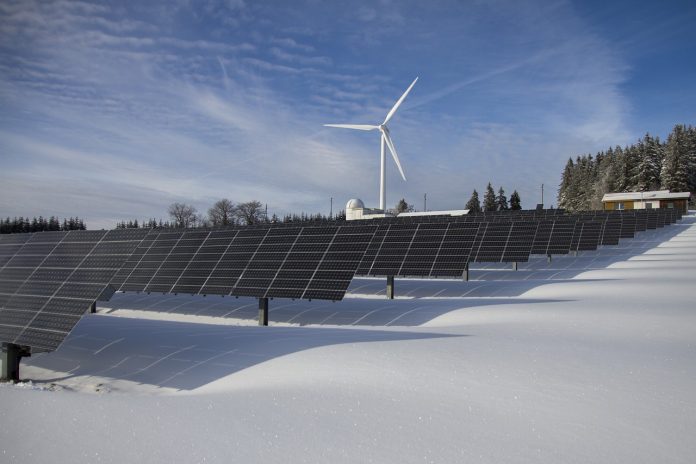By Holly Wetzel
MIDLAND, Mich. — The move towards net-zero goals threatens the reliability of the electric grid in the Great Lakes region, according to a new study published by the Mackinac Center for Public Policy. Shorting the Great Lakes Grid: How Net Zero Plans Risk Energy Reliability analyzes the electricity plans of seven Great Lakes states: Illinois, Indiana, Michigan, Minnesota, Ohio, Pennsylvania and Wisconsin.
Policymakers across the country are pushing plans to transition to wind and solar for electricity generation in an attempt to reduce carbon emissions. In the Great Lakes region, 32 of the 38 major investor-owned utilities have pledged to get to net zero carbon emissions by 2050 or sooner.
The study points out that while policymakers in Indiana, Ohio and Pennsylvania aren’t mandating the transition to net zero, those states still follow their neighbors’ path. Many of their major utilities are shuttering coal and petroleum plants while moving towards a greater reliance on wind and solar.
Wind and solar are weather-dependent and unreliable as a steady supply of electricity. If these sources fail to generate enough electricity, net-zero advocates often claim electricity can simply be purchased off the larger grid to make up for the shortfall. But as the study addresses, this plan only works if utilities in neighboring states aren’t all moving in the same disastrous direction.
Many grid operators have raised serious concerns about the readiness of current infrastructure to support these changes. The Midcontinent Independent Systems Operator, the grid operator for much of the Midwest, projects that by 2032, none of the five Great Lakes states in its area will have enough electricity capacity to meet demands.
“Aggressive net-zero energy policies pose serious risks to the reliability of our energy grid,” said Joshua Antonini, co-author of the study. “If we continue down this path, we should expect shortages and blackouts. Lawmakers and utilities must course correct and dismantle these harmful policies.”
Key recommendations from the study include:
- Maintaining a diverse energy portfolio that includes reliable power sources, such as natural gas and nuclear.
- Balancing environmental goals with basic energy needs.
- Reevaluating incentive structures for utilities to ensure reliable, affordable electricity.
“The modern electric grid is an essential aspect of our modern lives,” explained Jason Hayes, co-author of the study and director of energy and environmental policy. “We all rely on it to turn on the lights, to keep food refrigerated, to warm us in the winter and cool us in the summer.”
You can read the full study here.
Holly Wetzel is the director of public relations at the Mackinac Center for Public Policy. She interned at the Mackinac Center in 2017 before joining the staff full-time in January 2018. She was previously the Center’s communications coordinator and the communications manager.
Originally published by the Mackinac Center for Public Policy. Republished with permission.


























